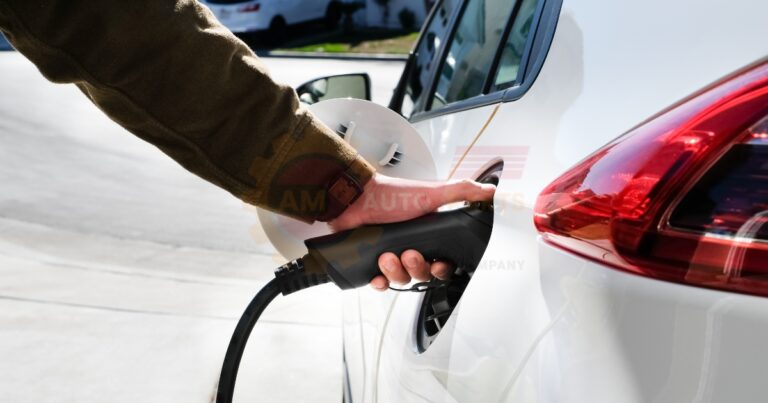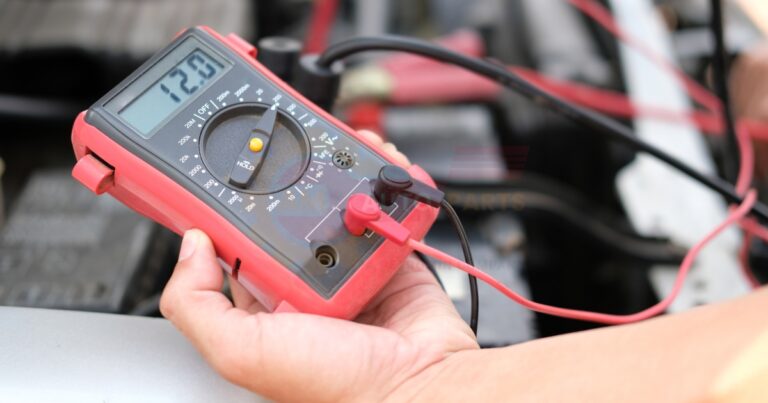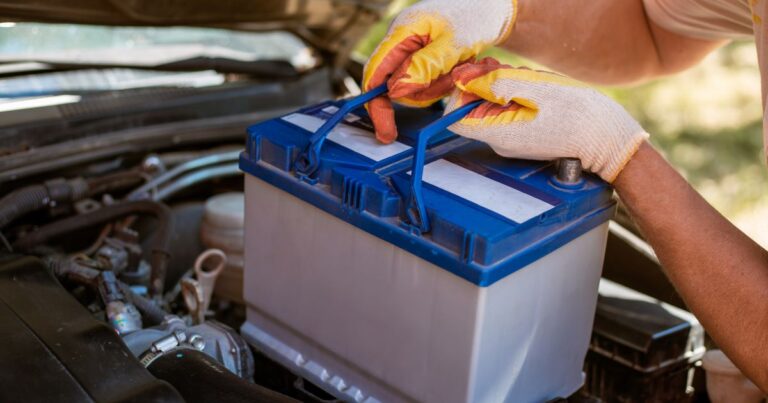How Often Does a Car Battery Need to Be Replaced?
Understanding how often a car battery needs to be replaced is crucial for maintaining your vehicle’s performance and reliability. Car batteries are the heart of your vehicle’s electrical system, and knowing when to replace them can save you from unexpected breakdowns. In this comprehensive guide, we’ll explore the average lifespan of car batteries, factors affecting their longevity, signs that indicate a need for replacement, and much more.
Average Lifespan of Car Batteries
The average lifespan of a car battery typically ranges from 3 to 5 years. This duration can vary based on several factors, including the type of battery, driving habits, and environmental conditions. Regular maintenance and proper care can help extend the life of your battery, but it’s essential to be aware of its age and performance.
- Standard Lifespan : 3-5 years
- Factors Influencing Lifespan : Battery type, driving habits, climate
Factors Affecting Battery Life
Several factors can influence how long your car battery lasts. Extreme temperatures, frequent short trips, and leaving your car unused for extended periods can all shorten battery life. Additionally, the quality of the battery and how well it’s maintained play significant roles in its longevity.
- Temperature Extremes : Both hot and cold weather can affect battery performance.
- Driving Habits : Short trips prevent the battery from fully charging.
- Maintenance : Regular checks and cleaning can prolong battery life.
Signs Your Car Battery Needs Replacement
Slow Engine Crank
A slow engine crank is often the first sign that your car battery may need replacement. If your engine takes longer than usual to start, it could indicate that the battery is losing its charge and may soon fail.
- Delayed Start : The engine takes longer to start.
- Frequent Occurrence : This happens more often over time.
Check Engine Light
The check engine light can illuminate for various reasons, including battery issues. If this light appears, it’s essential to have your battery tested to rule out any potential problems.
- Warning Indicator : Light may signal battery issues.
- Diagnostic Check : Necessary to determine the cause.
Swollen Battery Case
A swollen or bloated battery case is a clear sign of a failing battery. This condition is often caused by excessive heat and can lead to leaks or even battery failure.
- Physical Deformation : The battery case appears swollen.
- Potential Leaks : The risk of acid leaks increases.
Electrical Issues
If you notice flickering lights, malfunctioning electronics, or other electrical issues, your battery might be the culprit. A failing battery can cause inconsistent power supply to your vehicle’s electrical components.
- Inconsistent Power : Electronics may not function properly.
- Flickering Lights : Headlights and interior lights may dim.
Extending Your Car Battery’s Lifespan
Regular Maintenance Tips
Regular maintenance is key to extending your car battery’s lifespan. This includes cleaning the battery terminals, checking for corrosion, and ensuring a secure connection.
- Terminal Cleaning : Remove corrosion regularly.
- Secure Connections : Ensure the battery is tightly connected.
Proper Charging Habits
Proper charging habits can significantly impact your battery’s longevity. Avoid frequent short trips and ensure your battery is fully charged to prevent sulfation, which can reduce its lifespan.
- Avoid Short Trips : Allow the battery to fully charge.
- Use a Charger : Maintain charge during long periods of inactivity.
Cost of Car Battery Replacement
Average Prices for Different Battery Types
The cost of replacing a car battery can vary depending on the type and brand. On average, you can expect to pay between 0 and 00 for a new battery.
Battery Type | Average Cost |
Standard Lead-Acid | 0 – 20 |
AGM | 00 – 00 |
Lithium-Ion | 50 – 00 |
Importance of Regular Battery Testing
DIY Battery Testing Methods
Regular battery testing can help identify potential issues before they become serious. DIY methods include using a multimeter to check voltage and performing a load test.
- Voltage Check : Use a multimeter to measure battery voltage.
- Load Test : Assess battery’s ability to hold charge.
Professional Battery Diagnostics
Professional diagnostics provide a comprehensive assessment of your battery’s health. Technicians use specialized equipment to test the battery’s performance and recommend necessary actions.
- Comprehensive Testing : In-depth analysis of battery condition.
- Expert Recommendations : Guidance on replacement or maintenance.
Seasonal Effects on Car Battery Life
Winter Battery Care
Cold weather can significantly impact battery performance. To ensure your battery lasts through winter, keep it fully charged and consider using a battery warmer.
- Full Charge : Maintain charge to prevent freezing.
- Battery Warmer : Use to keep battery temperature stable.
Summer Battery Maintenance
High temperatures can cause battery fluid to evaporate, leading to reduced performance. Regular checks and maintenance can help prevent overheating and prolong battery life.
- Fluid Levels : Check and top up as needed.
- Avoid Overheating : Park in shaded areas when possible.
Choosing the Right Replacement Battery
Battery Size and Type Compatibility
Choosing the right battery involves ensuring compatibility with your vehicle’s specifications. Check the owner’s manual or consult a professional to find the correct size and type.
- Size Compatibility : Match battery size to vehicle requirements.
- Type Compatibility : Ensure battery type suits vehicle needs.
Performance vs Standard Batteries
Performance batteries offer enhanced power and longevity compared to standard options. Consider your driving habits and needs when selecting a replacement battery. Battery draining accessories Some phone cases and screen protectors can use extra power and make your battery run out faster Automotive electrical measurement helps check if car parts that use electricity are working right It uses special tools to test things like batteries wires and lights in vehicles
Jumpstart dead battery is a quick way to get your car running again when the battery is out of power You can use special cables to connect your car’s dead battery to another car’s working battery to bring it back to life Electrical system weakens when power lines get old or damaged This can cause lights to flicker and appliances to work poorly
Battery selection guide Choose the right battery for your device by looking at size voltage and how long it lasts Electric vehicle safety is about making sure electric cars are safe to drive and use These cars have special features to protect people from electrical problems and accidents
- Enhanced Power : Performance batteries provide more power.
- Longevity : Last longer than standard batteries.
Common Myths About Car Battery Replacement
Debunking Misconceptions
There are several myths surrounding car battery replacement, such as the belief that all batteries are the same. Understanding the differences can help you make informed decisions.
- Myth: All Batteries Are Equal : Different types offer varying performance.
- Myth: Maintenance Isn’t Necessary : Regular care is crucial for longevity.
Facts vs Fiction
Separating facts from fiction can help you better understand car battery replacement. For instance, while some believe batteries last forever, they have a finite lifespan.
- Fact: Batteries Have Lifespan : Typically 3-5 years.
- Fiction: No Maintenance Needed : Regular checks are essential.
By understanding how often a car battery needs to be replaced and recognizing the signs of a failing battery, you can ensure your vehicle remains reliable and efficient. Regular maintenance, proper care, and timely replacement are key to maximizing your car battery’s lifespan.rs)
FAQ’s
How do I know when my car needs a new battery?
You can tell your car needs a new battery by looking for signs like a slow engine crank, dimming headlights, and electrical issues. These indicators suggest that the battery is losing its charge and may soon fail. Regular testing can help identify problems early.
Can a car battery last 10 years?
While it’s possible for a car battery to last 10 years, it’s quite rare. Most car batteries last between 3 to 5 years, depending on usage and maintenance. Regular checks and proper care can help extend the battery’s life.
What happens if you don’t replace your car battery?
If you don’t replace your car battery when needed, it can lead to breakdowns and damage to the electrical system. A failing battery can cause an inconsistent power supply, affecting your vehicle’s performance. Timely replacement prevents these issues.
Is it OK to replace the car battery yourself?
Yes, you can replace a car battery yourself with proper safety precautions. However, professional replacement ensures the correct installation and disposal of the old battery. It’s important to follow guidelines to avoid any mishaps.






